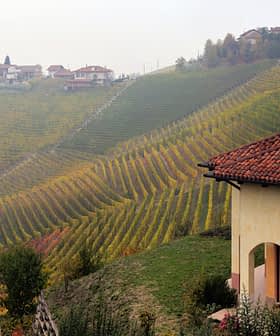Turkey's Prime Minister Fuels 'Olive Law' Debate
Prime Minister Binali Yildirim appeared to support the proposed changes to the law that protects small groves in comments he made at a meeting on June 3rd.
Hundreds of groves and the livelihoods of around 10 million people remain at risk as the future of Turkey’s olive trees is decided. Representatives from the olive industry met with high-ranking officials on June 7th in their latest attempt to halt a highly controversial draft law which critics say puts “public interest” above the protection of olive trees by allowing industrial facilities to encroach old groves.
Sometimes de facto situations arise. There are facilities which are constructed on former olive groves. The situation of those facilities has to be legalized.
At the meeting in Ankara, olive industry leaders appealed to Faruk Çelik, the food, agriculture and livestock minister and Faruk Özlü, Science, the industry and technology minister for proposed changes to the “Olive Law” aimed at reforming industrial production, to be omitted or revised in consultation with all parties. A final decision is not expected until a meeting with Prime Minister Binali Yildirim has taken place.
See Also:Turkish Government Backtracks Proposed Changes to ‘Olive Law’
Yildirim appeared to support the proposed changes to law with comments he made at a meeting on June 3rd: “Sometimes de facto situations arise. There are facilities which are constructed on former olive groves. The situation of those facilities has to be legalized. If that grove is on an industrial construction site, if there is no possibility to engage in olive agriculture, the regulation allows the industry to use the fields it needs.”
Yildirim criticized objections saying, “It has been presented as if olive groves are being razed for construction. That is wrong. Those who do not want Turkey to gain competitive power are engaging in this manipulation.” He accused the opposition of “presenting it in such a way that it is as if we destroyed olive groves. Compared to 2002, olive groves have grown, the olive production has been raised to make Turkey second to Europe (in terms of production).”
A more sympathetic stance was shown by Faruk Özlü, minister of science, industry and technology on June 4th, when he announced that he would withdraw the controversial olive tree draft if it “harmed even one olive tree,” adding, “If I know that even one olive tree is going to be cut down because of this law, I will withdraw it.”
“We planted more than 71 million olive trees in the last 14 years. When we first took the rule, there were nearly 100 million olive trees across Turkey. This has now increased up to 171 million. Why should we destroy them? There will be no harm on olive groves,” Özlü said.
Widespread opposition from olive growers, environmentalists, and the general public forced the Turkish Government to backtrack somewhat on their original proposed changes to Law 3573. A “Don’t touch my olive tree” petition organised by The Friends of Olives Association (Zeytindostu Derneği) has amassed over 30,000 signatures and at the end of May, the government withdrew a motion that would reduce the status of olive groves with fewer than 15 trees per decare (1,000 square metres) to mere fields.
This move has not appeased olive producers who feel that a number of key points, including restrictions relating to industrial and mining facilities in and around olive groves, have not been addressed. An “Olive Grove Preservation Board” has been set up to supervise investments in olive groves and report on investment demands.
Ümmühan Tibet, head of the National Olive and Olive Oil Council (UZZK) has criticized the government for not taking into account the organization’s opinions when preparing the bill. Tibet believes that the Agriculture Ministry should have been responsible for drafting the olive bill which was drawn up by the Industry Ministry.
Tibet told Hurriyet Daily News, “As UZZK, we are saying that once the bill passes, then it will cause irreversible damage. It will have a blow on the olive sector that has reached today’s level through many difficulties. This bill will negatively affect future generations.”
Tibet went on to cite the case of a monumental olive tree in the Izmir region of Turkey saying, “Only a couple of days ago we found an olive tree in Urla that was 2,310 years old. Imagine this tree was on land that was bought by a developer. If that tree blocks his project, he can cut it down.”
In an ironic twist, Istanbul’s Taksim Square gained five new olive trees as part of a recent facelift.








